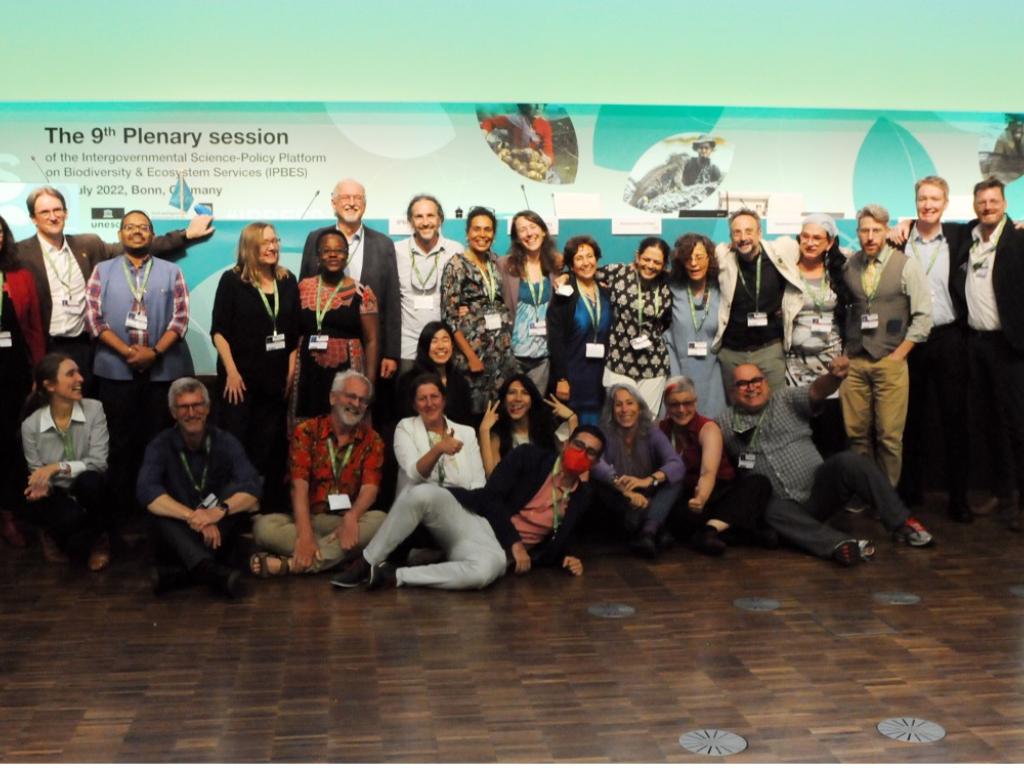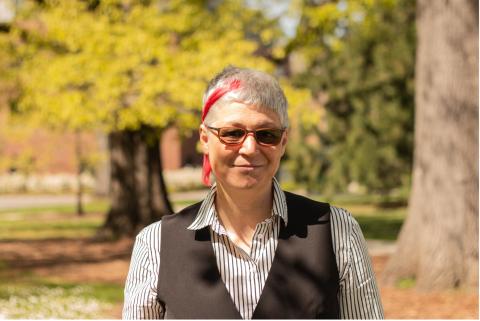
Editor's note: This article was produced by a student participating in the course J477/577: Strategic Science Communication, a collaboration between the School of Journalism and Communication’s Science Communication Minor program and the Research Communications unit in the Office of the Vice President for Research and Innovation.
The musing “If a tree falls in a forest and no person is around to hear it, did it make a sound?” is a philosophical question that probes the difference between perception and reality. It also speaks to the human relationship with nature. For Barbara Muraca, associate professor of philosophy and environmental studies at the University of Oregon, the way that humans frame their relationships with nature is crucial to whether our species values nature and our place within it.

Muraca’s emphasis on human-nature relationships led to her contributions to an assessment report produced by the Intergovernmental Science-Policy Platform on Biodiversity and Ecosystem Services (IPBES) on the Diverse Values and Valuation of Nature. Muraca explained that the IPBES, an intergovernmental group that provides services to the United Nations Environmental Programme, “first big product was a global assessment about the state and the status of biodiversity worldwide.” Muraca helped to co-write the report’s second chapter, which focused on the conceptual foundations.
Muraca found herself “unsatisfied” with how nature and its importance for people was defined in the discipline of environmental philosophy. In general, nature was framed simply with “nature for us or nature for its own sake without people” Muraca said.
Muraca thinks nature and people should be considered together as she notes, “it's not nature without people.” We need to “understand how people attribute importance to human-nature relationships.”
Collaboration With Other Universities
Kai Chan, a professor at University of British Columbia who later became Co-Chair of the Global Assessment for IPBES, learned of Muraca’s research in human-nature relational values and invited her to apply as contributor to the Value Assessment report.
Writing the assessment was lengthy, as the group of authors had to analyze existing environmental literature and write the report in a way that policymakers would understand and be able to use for guidance. At the end of this process, for the assessment to be accepted, it must be ratified by all IPBES member governments, which means the values of people from diverse cultures must be represented in the report.
President Joe Biden’s administration came in halfway through this process and was extremely interested in the use of Indigenous perspectives on the languages of values, Muraca said. For Muraca, the report is more than just a document. She hopes the assessment can help produce positive change globally.
"Every document is as strong as people who can leverage on it and make it be implemented” she said. “If there are people strong enough to use it and can push the government, they will. If not, it ends up in a drawer.”
Application at the University of Oregon
The experience of writing the assessment has proved to be a useful tool in Muraca’s courses.
She has used the assessment to guide a discussion in her upper-division and graduate –level Ecosystem and Society course. It was important in this class to learn to parse environmental literature and how to convert it in a way that policymakers can understand – a skill Muraca feels all scientists should have.
During an upcoming sabbatical, Muraca plans to continue working with colleagues on reframing human-nature relational values to make it even more easily understood by busy policymakers.
“I think the most important part of this is to acknowledge that there are different and diverse way to express why nature is important to people and that it is important that policymakers are interested in understanding and capturing these different ways through different languages speaking in their own terms,” she said.
It’s this idea, that the concept of nature is expressed in diverse ways by different groups of people, that Muraca hopes to help policy makers embrace in order to make the IPBES’s work inclusive of all cultures around the world.
